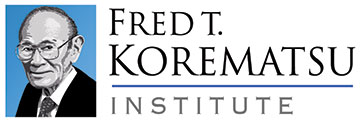DAY OF REMEMBRANCE
“And I just couldn’t believe it…I thought [for] sure that we won because it was unconstitutional what they did to the Japanese Americans, putting them in concentration camps…When I found out that I lost my decision, I thought I lost my country.” – Fred Korematsu, in 1944, learning he had lost his Supreme Court case, Korematsu v. United States.
February 19 marks the day in 1942 when President Franklin D. Roosevelt signed Executive Order 9066, which resulted in the imprisonment of these Americans of Japanese ancestry. It is a solemn day in our American story. In communities across this country, the Day of Remembrance is commemorated with events to promote education and understanding about this dark chapter in our history. But the Day of Remembrance should also serve as a reminder that we cannot let down our guard against hatred, bigotry, discrimination, and the erosion of civil liberties.
When Executive Order 9066 was issued, my father wondered why he should go to a prison camp when he did nothing wrong. We all have choices to make when at times of crossroads, so he disobeyed. But like 125,000 other Japanese Americans, he was still sent without cause, without due process, and with no recourse to “relocation centers” often located in desolate pockets around the country. The euphemism “relocation center” blurs the reality of prison walls, wire fences, armed guards, and poor conditions. By any definition, these were concentration camps. The real reason for the government’s deplorable treatment of Japanese Americans was not acts of espionage but rather a baseless perception of disloyalty grounded in racial stereotypes. Most lives were uprooted, and some lives were lost like James Hatsuaki Wakasa who was shot and killed by the military guard at the Topaz Incarceration Camp.
At the Korematsu Institute, we support education and civic advocacy to combat short memories. My father’s story is just as relevant today as it was when the Supreme Court handed down its decision in 1944. But this is not only about Japanese American history. It is an important American story that cannot be forgotten and brings to light the relevancy of the ongoing civil rights issues we are all still fighting for today. The 1944 ruling shows us that Americans’ civil liberties can be in peril in times of crisis when our Constitution’s principles must hold their strongest. As we now face unprecedented trials in the face of book banning, discriminatory actions against the LGBTQ community and spikes in Asian American Pacific Islander (AAPI) hate speech, fearmongering, and violence since the start of the Coronavirus pandemic.
On this Day of Remembrance, we should look back, but we should also look forward. We need to continue the conversation. We need to continue the education. We need to learn from our history. Nothing is more important than upholding our civil liberties and fighting for social justice. If all of us don’t participate in our democracy, we risk losing our rights, our voice, and our humanity. This is about all of us!
